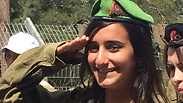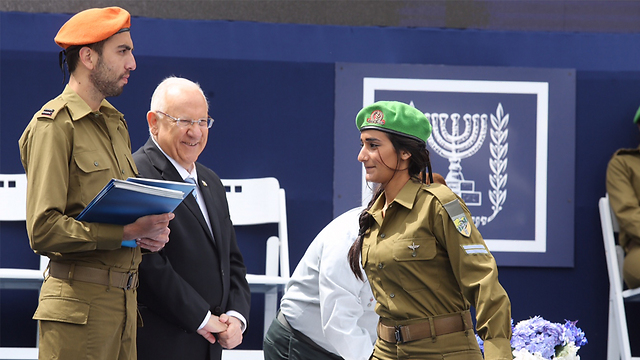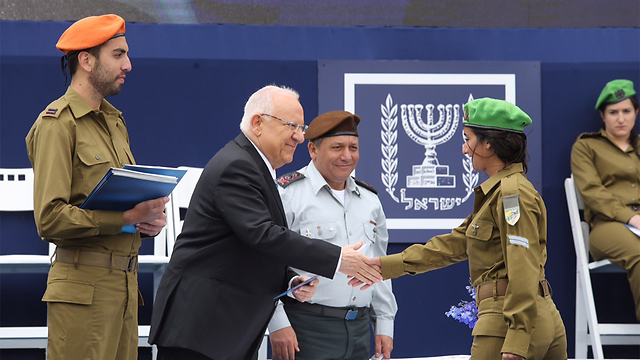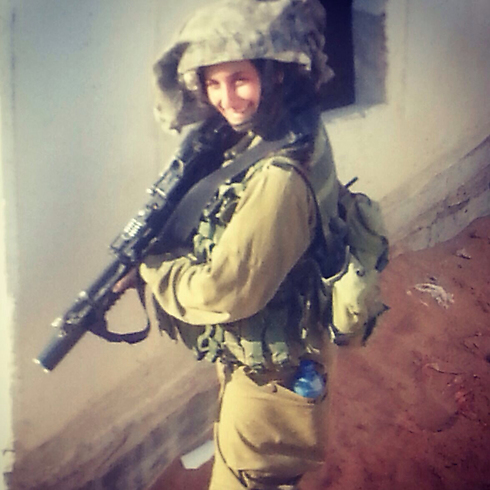
Hodaya Levi receives medal of excellence.
Photo: IDF Spokesman's Unit
Growing up, Hodaya Levi never thought that at age 20 she would serve as an IDF soldier, and definitely not as an infantry female fighter. Growing up in a Haredi family, the now corporal never thought she would join the army.
On Thursday, Independence Day in Israel, Levi was one of several soldiers to receive a 'Medal of Excellence' from President Reuven Rivlin.
At age 16, Levi began to question her faith after she had led most of her life studying in ultra-Orthodox institutions. The move away from faith led Levi to lose contact with her family.
"I've lived with a friend or with my boyfriend since and have moved around several apartments," she says.
At age 18, she was waived from completing her army service because of her ultra-Orthodox background.
"At age 20 I decided to cancel the waiver because I had gone out into the world. I understood that this was my country and that I had to get drafted and give my part – and, if already, give back all the way," she says.
It took time for Levi to get accepted into a female fighter unit and during an eight month period she canceled her appointment to two general roles in the IDF.
Levi knew she wanted to volunteer as a female fighter.
"They may have thought that I was not fit to be a fighter, but the third time I got a letter notifying me I was placed in the Caracal Battalion (a combat unit)."
Levi joined the volunteer combat unit a year ago and will complete a three year long service.
The unit's commander appointed Levi as her liaison and during basic training and advanced training Levi was not discouraged by anything that came her way – not even when she had to carry along an old and heavy communications machine.
After joining a unit stationed on the Egyptian border, Levi participated in operations conducted to stop smuggling attempts by infiltrators, smugglers and terrorists.
"The service is very challenging and has gotten me into situations that I would never imagine I would be in – physically and emotionally," she says. "I don't regret it for a second, because despite the hard moments I discovered things about myself I never thought I would be able to do."
Today, Levi considers herself as someone who keeps traditions and according to her "white socks will not make me any more religious."
"You can definitely be a religious female fighter. It is not easy or simply, because you are in an environment with people who do not keep (tradition) but it is possible.
"It is harder to sustain a religious lifestyle in the army than it is to be a combat soldier and whoever thinks she can and wants to should do it too."
Today, Levi hopes to begin a commander's course and hopes to renew ties with her parents, who she has not been in contact with for a few years.
"I hope that in time, the relationship with my parents will be renewed and that they will be proud of me."


















